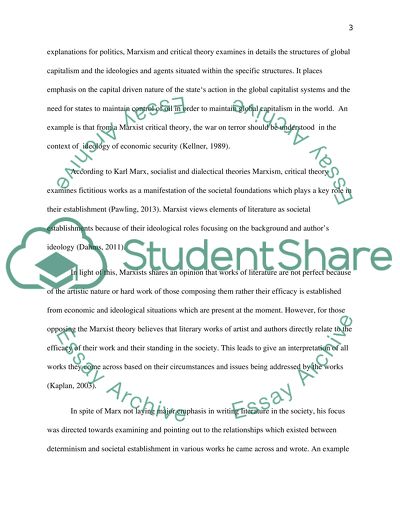Cite this document
(“What is the relevance of Marxism to critical theory Give examples of Essay”, n.d.)
Retrieved from https://studentshare.org/visual-arts-film-studies/1670258-what-is-the-relevance-of-marxism-to-critical-theory-give-examples-of-practices
Retrieved from https://studentshare.org/visual-arts-film-studies/1670258-what-is-the-relevance-of-marxism-to-critical-theory-give-examples-of-practices
(What Is the Relevance of Marxism to Critical Theory Give Examples of Essay)
https://studentshare.org/visual-arts-film-studies/1670258-what-is-the-relevance-of-marxism-to-critical-theory-give-examples-of-practices.
https://studentshare.org/visual-arts-film-studies/1670258-what-is-the-relevance-of-marxism-to-critical-theory-give-examples-of-practices.
“What Is the Relevance of Marxism to Critical Theory Give Examples of Essay”, n.d. https://studentshare.org/visual-arts-film-studies/1670258-what-is-the-relevance-of-marxism-to-critical-theory-give-examples-of-practices.


